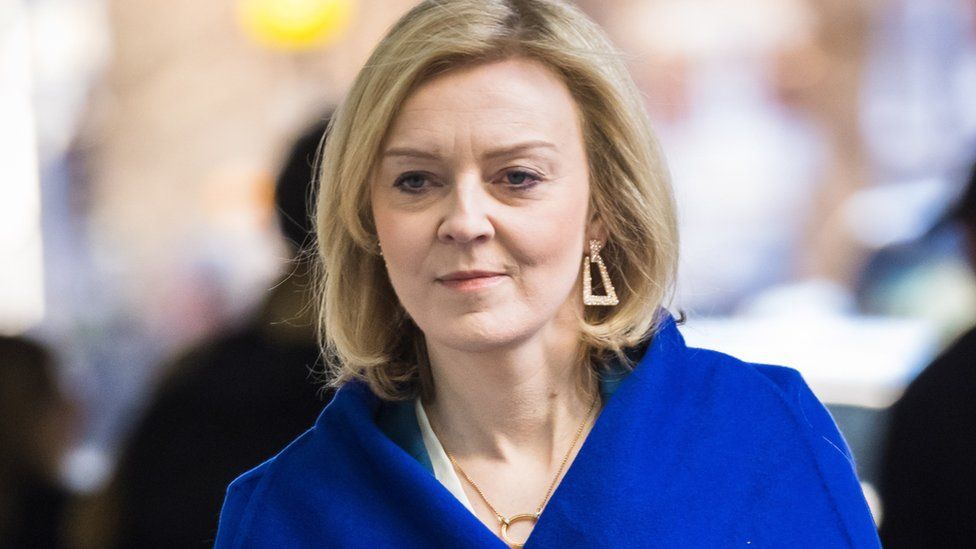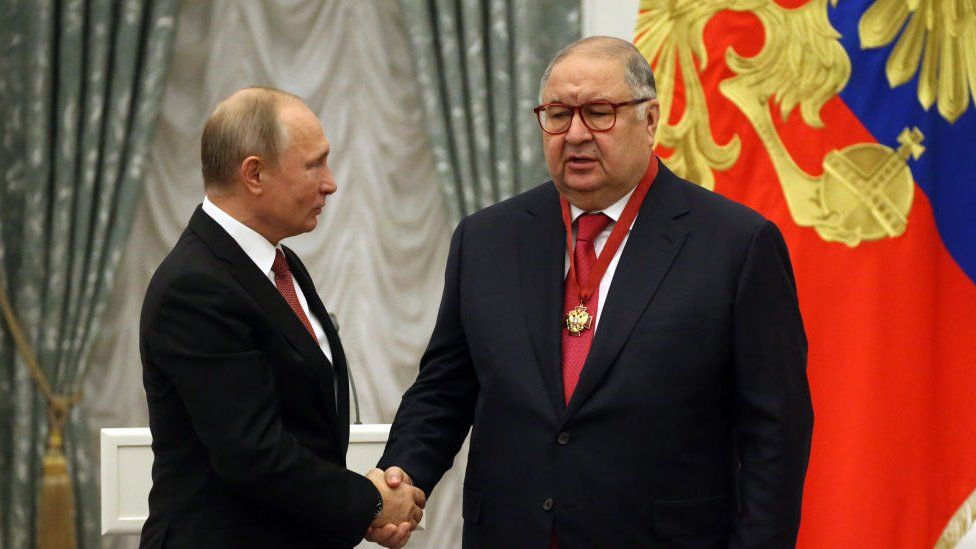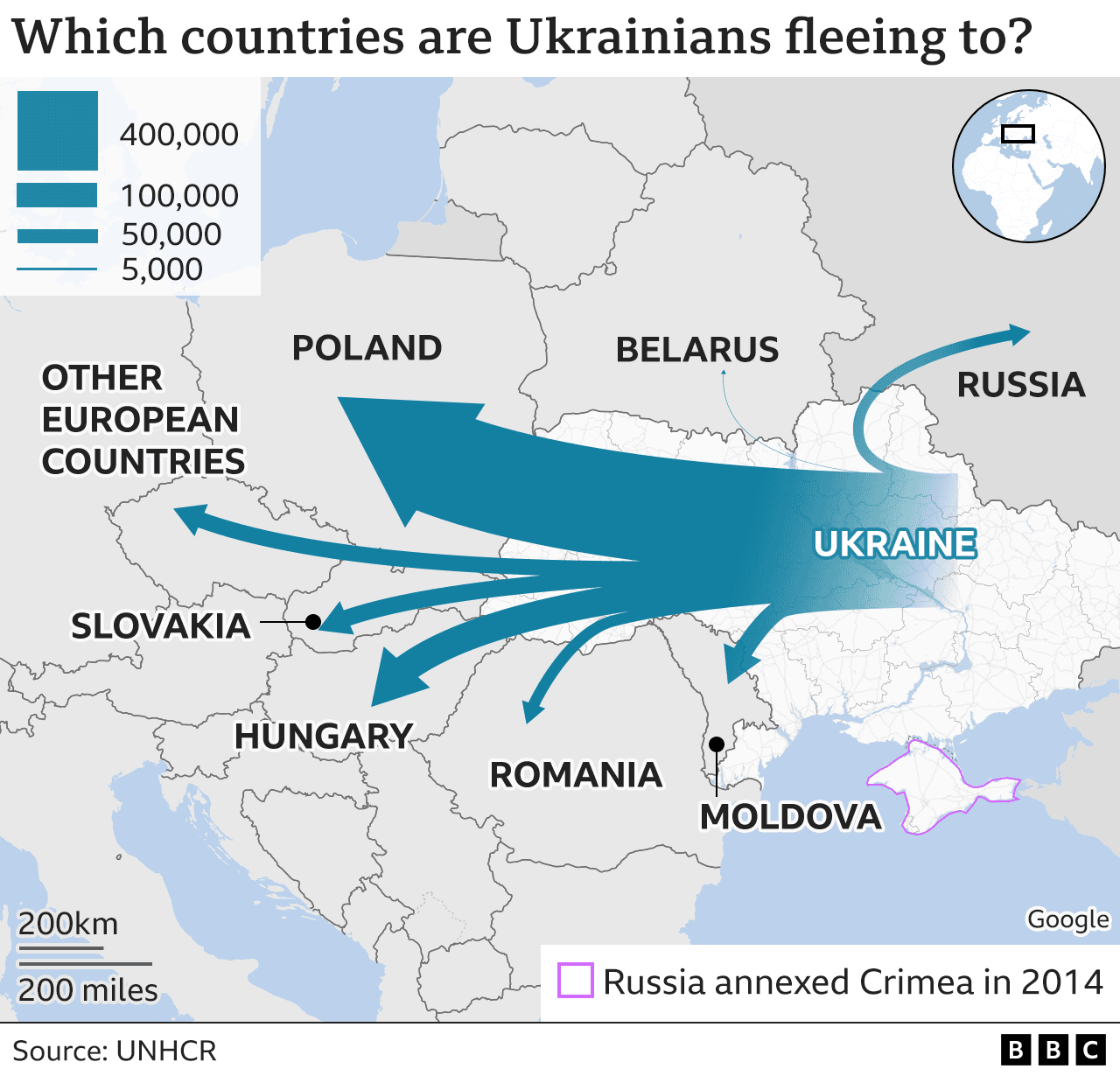Ukraine: Liz Truss to call on international community to step up support
 Image source, EPA
Image source, EPAUK Foreign Secretary Liz Truss is to seek agreement from the international community to step up support for Ukraine, in the face of continuing attacks from Russian forces.
Foreign ministers from across the west are gathering in Brussels to consider how to maintain pressure on Russia.
Ahead of the trip, Ms Truss said allies were prepared to "tighten the vice around Putin's war machine".
Europe's dependency on Russian oil and gas is also likely to be discussed.
Meanwhile, Home Secretary Priti Patel is visiting Poland to launch a new family scheme for Ukrainian refugees.
Under the extended scheme, which was announced earlier this week, British nationals and anyone settled in the UK will be able to apply to bring their parents, grandparents and siblings to the country.
The UK's initial visa offer was restricted to immediate family, including children and partners.
In Brussels, the foreign secretary will call on her counterparts from Nato, the G7 and EU to "embrace reliable partners rather than be dependant and beholden on any one country" for oil or gas.
Ms Truss, who called it "one of the biggest days of diplomacy", said co-operation between the UK and EU was "essential to defend European security".
"We will work with fellow freedom-loving democracies to tighten the vice around Putin's war machine and signal our strong support for Ukraine's territorial integrity," she added.
Russian President Vladimir Putin has insisted the war in Ukraine is "going to plan", despite taking only one major city - Kherson in the south.
Elsewhere, Ukrainian President Volodymyr Zelensky has accused Russia of "nuclear terror" after it bombarded a large nuclear power station, causing a fire.
The authorities say the Zaporizhzhya plant - which is the biggest of its kind in Europe - is secure and radiation levels are normal.
It comes after President Zelensky asked Mr Putin for one-to-one talks, saying it was the only way to end the war. He has also appealed to Nato to supply warplanes.

Russia attacks Ukraine: More coverage
- LIVE: Latest updates from on the ground
- THE BASICS: Why is Putin invading Ukraine?
- INNER CIRCLE: Who's in Putin's entourage, running the war?
- UKRAINE: 'I have never felt so much love for my homeland'
- IN DEPTH: Full coverage of the conflict

While defensive weapons have been sent to Ukraine, the West has largely responded to the invasion with economic sanctions against Russian individuals, businesses and banks.
On Thursday the UK announced sanctions on two more Russian oligarchs - Alisher Usmanov, a billionaire whose company previously had links with Arsenal football club - and Igor Shuvalov, a former deputy prime minister to Mr Putin.
Their assets will be frozen and they will be banned from travelling to the UK. British citizens and businesses will not be allowed to deal with them.
But there have been calls for swifter and more thorough clampdowns on oligarchs, with the UK accused of being slower than its European neighbours and facing legal hold-ups preventing sanctions - claims rejected by Downing Street.
There are fears that oligarchs will sell property and move money and assets out of the UK before they are targeted. Ministers have set up a taskforce to look into individual cases.
Justice Secretary Dominic Raab said the government would also look at ways to stop lawsuits being used by wealthy individuals to intimidate journalists and organisations looking into sources of their wealth. He is to explore options including regulatory reform and potential legislation.
Mr Raab said: "We will not have people close to Putin coming here to try and bankrupt people who shine a light on his excesses."
 Image source, Getty Images
Image source, Getty ImagesMeanwhile on Friday, the home secretary will meet Ukrainians applying for the UK's family scheme in Medyka, near the border with Ukraine.
Ms Patel said the extended scheme would enable Ukrainians with family in the UK "to be welcomed safely, quickly and free of charge".
Under the scheme, normal requirements for salary or language tests will be waived and checks will be accelerated to process applications as quickly as possible, the Home Office said.
It added that "essential security checks" would still take place "given the malign action being taken by the Russian state to infiltrate Ukraine".
It said the family scheme would be followed up by another for Ukrainians with no ties to the UK - with further details to be set out "in due course"
However, Labour called for the creation of a simple emergency visa, valid for 12 months, allowing anyone fleeing the conflict to come to the UK, with normal visa conditions other than biometrics and security checks lifted.
More than one million Ukrainians have fled the country since the invasion began last week, according to the United Nations, with most heading for neighbouring countries.




No comments